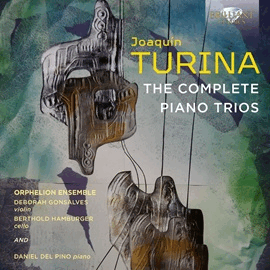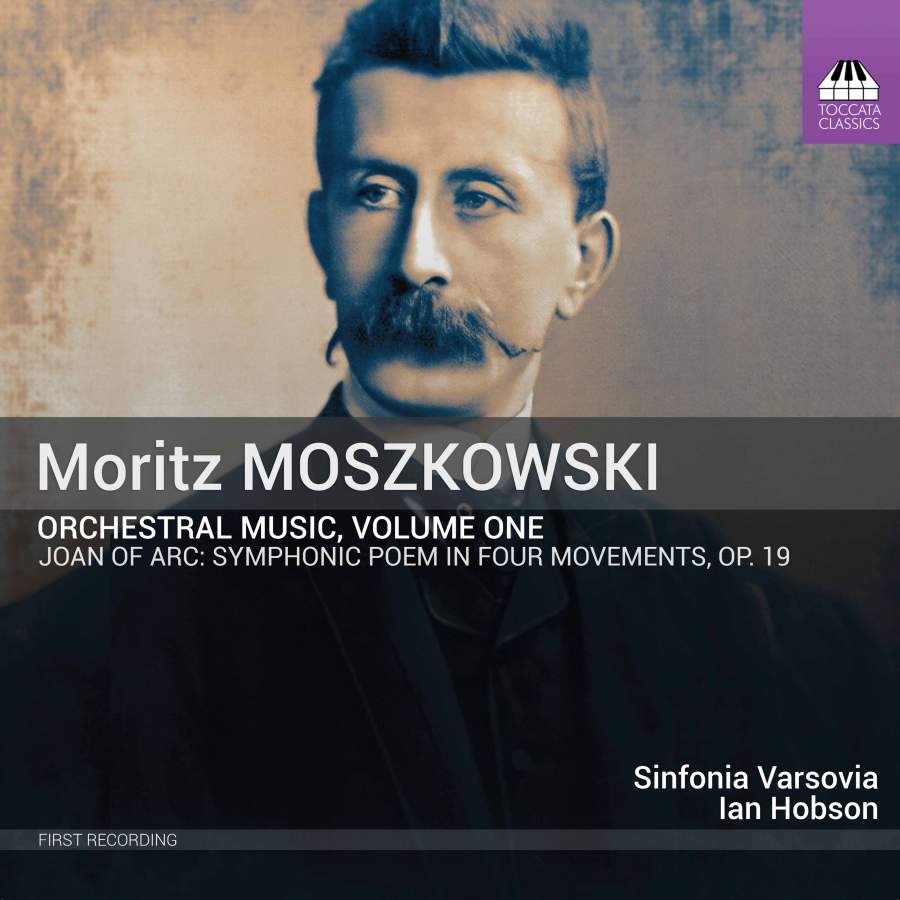 Moritz Moszkowski: Orchestral Music, Volume One (Jeanne d'Arc op. 19); Sinfonia Varsovia, Ian Hobson; 1 CDE Toccata Classics TOCC0523; Aufnahme 12/2018, Veröffentlichung 10/2019 (UK), 11/2019 (D) - (59'26) - Rezension von Remy Franck
Moritz Moszkowski: Orchestral Music, Volume One (Jeanne d'Arc op. 19); Sinfonia Varsovia, Ian Hobson; 1 CDE Toccata Classics TOCC0523; Aufnahme 12/2018, Veröffentlichung 10/2019 (UK), 11/2019 (D) - (59'26) - Rezension von Remy Franck
Der polnische Komponist Moritz Moszkowski wurde 1854 in Breslau geboren, lebte aber ab 1897 in Paris, wo er 1925 verarmt sowie von der lokalen Musikszene unbeachtet starb. Er schrieb eine unprätentiöse Musik mit eingängiger Melodik und vielen originellen Einfällen, die durchaus gefallen kann. Eingespielt wunden von ihm vor allem Klaviermusik und die Konzerte für Klavier bez. Violine.
Toccata Classics startet eine Gesamtaufnahme der Orchestermusik mit – als Ersteinspielung! – seinem Sinfonischen Gedicht in vier Sätzen Jeanne d’Arc op. 19 (1879), das das Leben, den Tod und die Verklärung der Heldin aus der Sicht von Schiller darstellt. Moszkowski gestand den Einfluss von Wagner und Raff auf das Werk ein, aber es ist unüberhörbar auch von Liszt beeinflusst.
Die Komposition wird von der Sinfonia Varsovia unter Ian Hobson sehr gut gespielt, die Aufnahme ist transparent und wohl proportioniert, aber so richtig spannend will die Musik nicht werden.
Polish composer Moritz Moszkowski was born in 1854 in Breslau, but from 1897 lived in Paris, where he became impoverished and died in 1925 unnoticed by the local music scene. He wrote unpretentious music with often catchy melodies and many original ideas, which can be quite pleasing. In the record catalogues there are a lot of recordings of his piano music and the concertos for piano and violin, but his orchestral works are clearly underrepresented.
Toccata Classics starts a complete recording of the orchestral music with – as a first recording! – his symphonic poem in four movements Jeanne d’Arc op. 19 (1879), which depicts the life, death and transfiguration of the heroine from Schiller’s point of view. Moszkowski admitted the influence of Wagner and Raff on the work, but it is also unmistakably influenced by Liszt.
The composition is played very well by the Sinfonia Varsovia under Ian Hobson, the recording is transparent and well proportioned, but the music does not become really exciting.


















